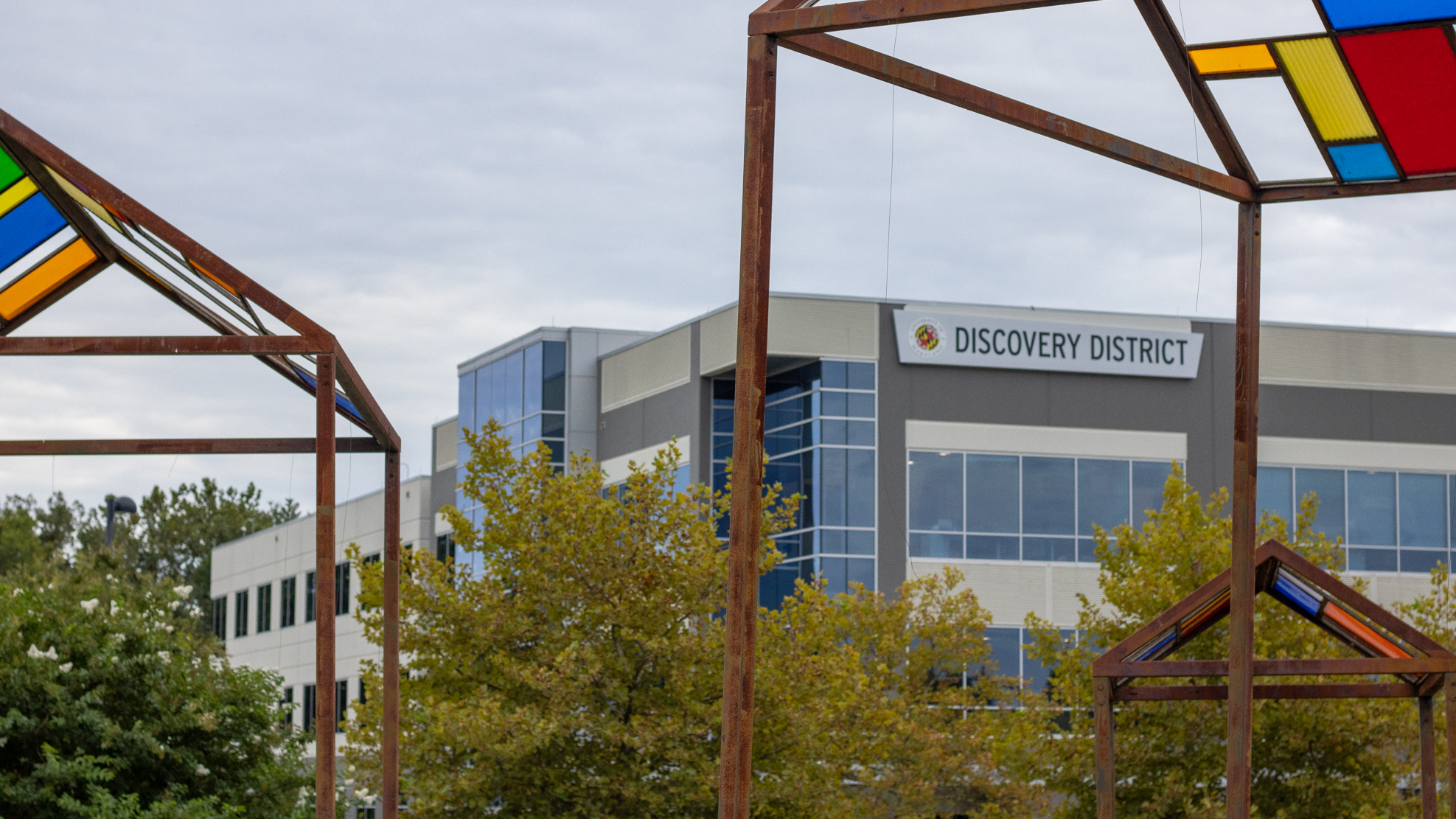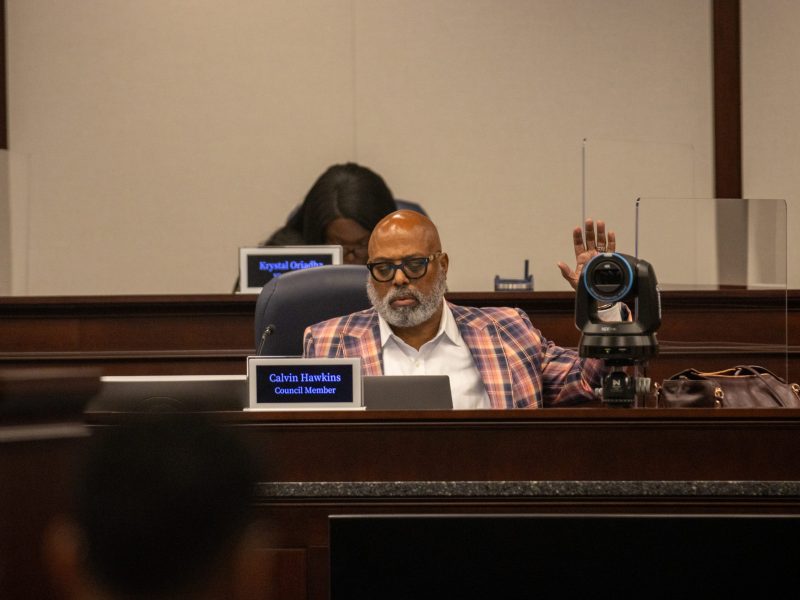Maryland Gov. Wes Moore and the University of Maryland launched a $1 billion public-private partnership Tuesday to help position the state and university as global leaders in quantum technology.
Moore launched the “Capital of Quantum” initiative during his economic growth press conference at IonQ, a quantum firm rooted in this university’s research and based in College Park.
By partnering with private-sector companies such as IonQ, the initiative aims to generate $1 billion in investments over the next five years and push advancements in quantum research, workforce development and industry collaboration, according to a news release from this university.
University president Darryll Pines and IonQ president and CEO Peter Chapman joined Moore to announce the initiative.
Moore emphasized that quantum science could transform industries including national security and health care.
“Maryland is uniquely positioned to lead in these high-tech industries, from quantum computing, to biocomputing, to cybersecurity,” Moore said during Tuesday’s press conference.
Funding for the initiative will come from state investments, federal grants, private-sector contributions and philanthropic support, Moore said. The partnership aims to build world-class research facilities, attract talent to the state and foster discoveries in quantum technology, Moore added.
[UMD leaders hope to embrace AI in classrooms, balance ethical concerns]
Under the new initiative, this university will recruit top quantum scientists, expand its National Quantum Laboratory in partnership with IonQ and increase support for startups focusing on quantum technology, according to this university’s news release.
“Through this emerging technology, one day, we will be able to make exponential advances in areas such as cryptography, materials design and development, new battery technology, quantum networks, precision navigation and timing,” Pines said at the press conference. “And yes, of course, artificial intelligence.”
IonQ plans to expand its headquarters at this university’s Discovery District and grow its workforce to at least 250 employees in the next five years, according to this university’s news release. The facility will include labs and data centers to support the next generation of quantum computing innovations.
Chapman said the initiative will focus on advancements such as powering the pharmaceutical industry, solving optimization problems, leading in AI and building the quantum internet of the future.
“We look forward to building that future with the university and with the state,” Chapman said during Tuesday’s press conference.
Moore’s proposed fiscal year 2026 budget, which he is set to release Wednesday, includes $27.5 million in state funding for the initiative, according to the university’s release. This university has pledged to contribute more than $200 million in additional funding for the initiative across five years, Pines said during the announcement.



